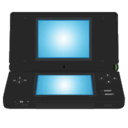- Home
- Emulators
- Nintendo 3DS
- Panda3DS

Panda3DS Description
The Nintendo 3DS handheld console is beloved by many gamers for its innovative stereoscopic 3D visuals, unique dual-screen setup, and terrific library of first-party franchises. Since its 2011 debut, over 75 million 3DS units have been sold, treating fans to amazing experiences like The Legend of Zelda: Ocarina of Time 3D, Super Mario 3D Land, and Pokémon X and Y, among countless other hits. But with production ending in 2020, playing 3DS games legally now requires tracking down the discontinued handheld.
This is where the new open-source Nintendo 3DS emulator Panda3DS comes in. Still in early development but showing immense promise already, Panda3DS aims to let you revisit your favorite 3DS adventures on your modern Windows, Mac, or Linux PCs.
What is Panda3DS Emulator?
Created by developer RSDuck, Panda3DS is a free Nintendo 3DS emulator built using C++. Like other emulators, it works by replicating the functionality of 3DS system hardware through software interpretations. This allows you to play original 3DS game dumps, known as ROM images, on devices other than the handheld.
Panda3DS is designed as an open and versatile emulator intended for users of all kinds, whether casual players, homebrew developers, or modders. Key goals include:
- Achieving high 3DS emulation performance even on lower-end hardware like the Raspberry Pi 4
- Providing integrated tools for debugging, reverse engineering, and game modding
- Experimenting with unique features like graphics/audio enhancements and amiibo support
Even in early beta state, Panda3DS can already boot and run many commercial 3DS titles. It represents an exciting new option in the 3DS emulation scene.
Key Features and Capabilities
As a new emulator, Panda3DS still lacks some features in mature alternatives like Citra. But current capabilities include:
- Basic game compatibility: Many titles already boot, some with broken graphics/audio
- Multiplatform support: Can be compiled for Windows, Mac, Linux, and more
- Active development: Regular updates and improvements from the creator
- Open source: Source code is publicly available for learning and contribution
While quite basic, the long-term roadmap includes boosting compatibility, implementing enhancements, and creating integrated development tools.
System Requirements
Since it is built with efficiency in mind, Panda3DS can run on a wide range of PCs:
- A 64-bit Windows, Mac, or Linux system
- At least a dual-core CPU, with quad-core strongly recommended
- A dedicated GPU with OpenGL 3.3 support
- At least 4GB RAM
- Decrypted Nintendo 3DS game dumps in .3DS or .CIA format
More demanding games naturally benefit from stronger hardware. But the emulator is designed for playability even on modest PCs like the Raspberry Pi 4.
The Pros and Cons of Panda3DS
As an experimental early-stage emulator, Panda3DS comes with both advantages and drawbacks:
Pros
- Specifically optimized for low-end hardware performance
- Open-source nature for community learning/contribution
- Strong roadmap, including debugging/modding tools
- Regular updates and improvements from active development
- Free alternative to paywalled emulators
Cons
- Very limited game compatibility currently
- Missing features like audio support and UI
- Potential bugs and crashes common in early software
- Legal gray area of required decrypted game ROMs
- Can’t play physical game cartridges
While more limited than polished emulators like Citra right now, Panda3DS shows exciting potential for the future.
Join the Panda3DS Community
RSDuck is open to contributions from coders and non-coders alike to help Panda3DS grow. If you are enthusiastic about Nintendo 3DS emulation and preservation, consider:
- Testing games and reporting compatibility and issues
- Contributing code to the open source project on GitHub
- Donating to support ongoing development
- Following updates on the official Panda3DS blog and Discord server
Everyone is welcome to join the passionate early adopter community driving this promising new emulator forward.
Conclusion
The Nintendo 3DS library stands as one of the strongest of any handheld, filled with first-party masterpieces and unique experiences. Now that the stereoscopic console has been discontinued, playing these memorable games legally is becoming difficult. This makes emulation projects like the fledgling Panda3DS all the more important for preservation.
Even in its early state, Panda3DS shows serious potential to evolve into a polished, optimized Nintendo 3DS emulator. Its open and versatile nature provides opportunities for community contribution to something greater. While still requiring decrypted ROMs, it could eventually make experiencing the 3DS catalog far more accessible.
If you have a soft spot for Nintendo 3DS gaming, keep an eye on Panda3DS as it matures. Join the enthusiastic early adopter community in testing, contributing, and shaping its future. With dedication from fans and developers alike, Panda3DS can help carry the legacy of the 3DS handheld forward for many more years through emulation.


